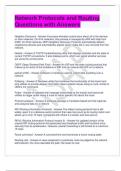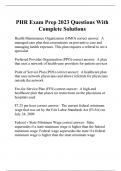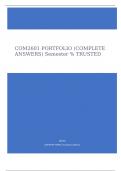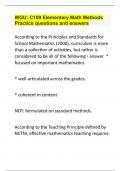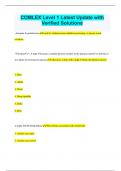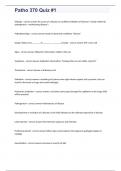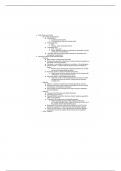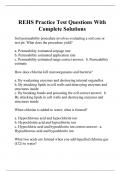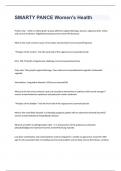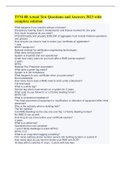Exam (elaborations)
Network Protocols and Routing Questions with Answers
- Course
- Institution
Network Protocols and Routing Questions with Answers Neighbor Discovery - Answer-A process whereby routers learn about all of the devices on their networks. On IPv4 networks, this process is managed by ARP with help from ICMP. On IPv6 networks, NDP (Neighbor Discovery Protocol) automatically dete...
[Show more]
